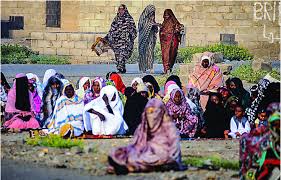
As Sudan’s brutal civil conflict stretches into a second year, Egypt has emerged as a principal sanctuary for those fleeing devastation, now hosting an estimated 5.5 million Sudanese nationals. In a joint televised interview with Egypt’s Ten TV and Russia’s RT, Egypt’s Foreign Minister Badr Abdelatty revealed on May 11 that the country has shouldered “the greatest burden” of the war’s fallout.
Speaking from Moscow, where he attended Victory Day commemorations, Abdelatty expressed grave alarm at the catastrophic humanitarian crisis unfolding in Sudan—a crisis the United Nations has labelled the worst in the world.
Since April 2023, the war between Sudan’s army and the paramilitary Rapid Support Forces (RSF) has displaced nearly 13 million people, with over 1.5 million seeking refuge in Egypt alone. Sudanese nationals now comprise 72 percent of Egypt’s registered refugee population, according to the UNHCR. The foreign minister decried the “deliberate and systematic targeting” of Sudan’s critical infrastructure, warning that the destruction of power grids and roads amounts to a direct assault on the collective wealth of the Sudanese people. He highlighted the grim conditions in Darfur and Zamzam Camp, alongside the disturbing rise in drone strikes on once-safe areas like Port Sudan.
Yet, amid the darkness, Abdelatty underscored Egypt’s unwavering commitment to peace. He reiterated Cairo’s position that the Sudanese conflict cannot be resolved through arms but only via inclusive political dialogue. Egypt, he affirmed, continues to press for de-escalation through diplomatic avenues, prioritising the dignity and safety of the Sudanese people. In closing, Abdelatty noted that Egypt now shelters over 10 million foreign nationals from 133 nations—a testament to the country’s enduring humanitarian ethos and regional responsibility.
